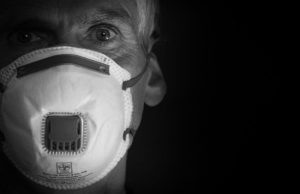 Aside from the obvious physical impacts of the Covid-19 pandemic, health professionals have told CNBC that many people are struggling with the immense emotional and societal changes it has brought. What’s more, they’re finding it hard to adapt to a “new normal” now that lockdowns are starting to ease.
Aside from the obvious physical impacts of the Covid-19 pandemic, health professionals have told CNBC that many people are struggling with the immense emotional and societal changes it has brought. What’s more, they’re finding it hard to adapt to a “new normal” now that lockdowns are starting to ease. Many psychologists and psychiatrists have reported an influx of people seeking mental health support during the pandemic, with the unprecedented global health crisis causing an increase in anxiety and depression as well as exacerbating existing mental health conditions.
“I have never been as busy in my life and I’ve never seen my colleagues as busy,” Valentine Raiteri, a psychiatrist working in New York, told CNBC.
“I can’t refer people to other people because everybody is full. Nobody’s taking new patients … So I’ve never been as busy in my life, during the pandemic, and ever in my career,” he said, adding that he’s also seen an influx of former patients returning to him for help.
Raiteri said that many of his patients are still working remotely and were isolated, with many feeling “disconnected and lost, and they just have this kind of malaise.”
“That is really hard for me to do anything about,” he said, noting: “I can’t make the pressures disappear. I can always treat the illness that it provokes.”
Numerous studies on the impact of Covid on mental health have been carried out. One study, published in The Lancet medical journal in October, looked at the global prevalence of depression and anxiety disorders in 204 countries and territories in 2020 due to the Covid pandemic.
It found that mental health dramatically declined in that year, with an estimated 53 million additional cases of major depressive disorders and 76 million additional cases of anxiety disorders seen globally. Women and younger people were found to be affected more than men and older adults.
Anxieties
As the pandemic really took hold in the spring of 2020, there was little understanding of how long the pandemic would last. Psychologists say there was a surprising amount of resilience during the first few months of the virus’ outbreak, particularly when many countries went into unprecedented lockdowns.
Raiteri said that over time, however, the loss of daily social contact started to take its toll.
“There’s definitely a huge mental health impact from a long period of uncertainty and change that’s left people very isolated and not sure how to connect. Just being out in public and interacting in a very casual way with strangers or mild acquaintances, that’s very regulating, and norm-creating and reality affirming.”
When we stop getting those signals, Raiteri said, “our internal voices become stronger and it becomes harder and harder to self regulate.”
That created a “big pressure cooker, especially for people who already have a vulnerability,” he said.
Natalie Bodart, a London-based clinical psychologist and head of The Bodart Practice, told CNBC that the pandemic meant that many people had to confront issues in their life that they’d been able to avoid before, such as alcoholism, relationship issues, isolation and loneliness.
“Our day to day lives serve as great defense mechanisms, we have lots of distractions that help us to avoid things, for good and for ill,” she said.
“For example, we have had younger people that have come to us and said, ‘now that I’m not doing my very sociable busy job anymore, I realize I’ve got a problem with alcohol.’ And why is that? Well, that’s because it can’t be covered up anymore by the fact that their work demands that they socialize and drink a lot. Or, people who have been in relationships where they don’t see that much of their partner, so it works, it functions, but then you’re stuck at home with that person and suddenly realize, actually, there’s a lot of things coming out that we just haven’t confronted or haven’t realized.”
Source: CNBC


